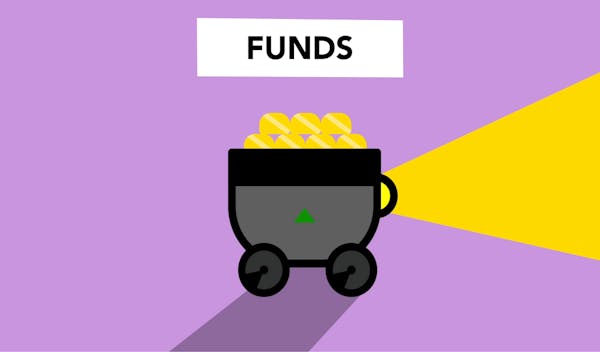Featured Post
- Get link
- X
- Other Apps
What is a Venture Capital Fund?
Investors pledge a certain amount of money to form a venture capital (VC) fund in order to invest in startups. The investors that contribute money to the fund are referred to as limited partners. The general partner is the individual in charge of managing the fund.
What is a Venture Capital Firm?
In the fund, a venture capital company plays the roles of both an investor and a fund manager. They often contribute 1% to 2% of their own money as an investor, showing other investors their dedication to the fund's success.
As the fund manager, they are in charge of locating investment possibilities, cutting-edge technology or business models, and those that have the potential to provide significant returns on investment for the fund.
Positions in Venture Capital Companies
In a venture capital company, typical responsibilities include:
General Partners: In charge of all fund investment choices; they often provide funds to the fund.
Venture Partners: Investment opportunities are sourced by venture partners, who are compensated depending on the agreements they complete.
Principals: A mid-level role with an emphasis on investments. with knowledge of the fund's investment strategy and investment banking expertise
Associates: Entry-level personnel with some expertise in management consulting or investment banking
Entrepreneur-in-Residence: Sector specialists who are temporarily employed by the venture capital firm as advisers or consultants, often to help with due diligence or proposing fresh business ideas.
Compensation of Venture Capital Companies
Management fees and carried interest are the two income streams that venture capital companies rely on for funding.
Investors pay management fees to the venture capital company on an annual basis to help defray operating costs. Typically, the charge is roughly 2%.
Every time the fund makes a profit, carried interest, a performance incentive, is paid to the venture capital company; it generally accounts for 20% of the entire profit distribution. The funds are subsequently allocated among the venture capital firm's staff, with the general partners receiving the lion's share.
Venture Capital Fund Types
Venture capital funds often concentrate on a particular sector of the market, stage of funding, region, or any combination of these. For instance, a fund may solely finance early-stage startups operating in different sectors or US biotech firms. In the end, the choice will depend on which regions the venture capital company has the most expertise in and which are the most desirable in the present market environment.
A Venture Capital Fund's Life Cycle
A capital-raising phase precedes the creation of funds, during which the venture capital company searches for investors for the new fund. The procedure might take months or even years, depending on the firm's reputation, the state of the market, and the fund strategy. The fund closes to new investors as soon as the desired financing level is attained.
After then, a three to five year investment phase is started by the venture capital business, during which the fund management distributes the funds to investment firms and develops the portfolio. The emphasis now changes to portfolio management and giving the investment companies the tools they need to maximize the likelihood of a successful exit.
A venture capital fund has a seven to 10 year lifespan overall, from the time the fund is established until all agreements are concluded and any profits are returned to the investors.
Exit strategies and return generation
Returns on venture capital investments, in contrast to interest-bearing bonds or dividend-paying equities, can only be realized when a holding is sold. The three most typical exits are as follows:
1. Direct share sale
The investment business's interest in the fund is either
sold to another investor or the investment company itself.
2. Purchasing
In an acquisition, a different business—typically a large one—buys the
investment firm and, in the process, also buys out the venture capital fund.
3. Party Offering (IPO)
The venture capital fund sells its shares when the investment business goes
public in an initial public offering (IPO).
Financial Risks
Venture capital investments include a significant level of risk, despite the potential for handsome profits. The majority of businesses fail, which may cause the fund to suffer significant losses or perhaps a complete loss. The risk increases with the stage of investing since less developed, untested enterprises or innovations are more likely to fail.
To effectively manage the total risk of venture capital investments, diversification is essential. To diversify their risk, venture capital companies often invest in a number of enterprises rather than focusing on one or two.
FAQ
How do venture
capital funds make money?
The carried interest on their investments and management fees are how venture
capitalists are compensated. The majority of VC firms get 20% of the private
equity fund's revenues, with the remaining 80% going to its limited partners.
Additionally, general partners may be charged an extra 2% fee.
How long do VC funds last?
The majority of VC funds are closed-end funds, which means they work with a
predetermined amount of cash for a specified period of time—typically 10 years.
After the final closure, the fund makes the overwhelming bulk of its
investments.
How do I start a venture fund?
- Create a reputation or possess a competitive advantage.
- Establish your investment thesis.
- Make investment decisions.
- Create your venture capital company.
- Establish a due diligence procedure.
- Choose the perfect venture capital tech stack.
- Get link
- X
- Other Apps




Comments
Post a Comment